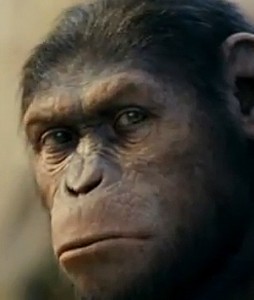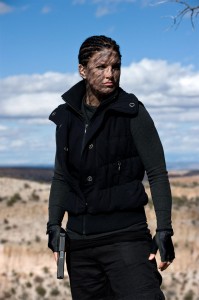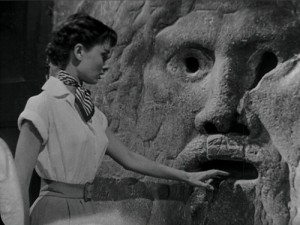Dr. Seuss wrote The Lorax in 1971, around the time of the first Earth Day and the creation (by Republican President Richard Nixon) of the Environmental Protection Agency. It is the story of the “Once-ler” who chanced upon a place filled with wondrous Truffula Trees, Swomee-Swans, Brown Bar-ba- loots, and Humming-Fishes. Thrilled by the beauty of the Truffula Trees and greedy with the opportunity to use their tufts to make things, he ignores the warnings of the tree-loving Lorax. Finally, the Lorax goes away, leaving a rock engraved “UNLESS.” One Truffula seed remains.
in 1971, around the time of the first Earth Day and the creation (by Republican President Richard Nixon) of the Environmental Protection Agency. It is the story of the “Once-ler” who chanced upon a place filled with wondrous Truffula Trees, Swomee-Swans, Brown Bar-ba- loots, and Humming-Fishes. Thrilled by the beauty of the Truffula Trees and greedy with the opportunity to use their tufts to make things, he ignores the warnings of the tree-loving Lorax. Finally, the Lorax goes away, leaving a rock engraved “UNLESS.” One Truffula seed remains.
This week’s release of a new film version has already led to complaints from Lou Dobbs, who says it is left-wing propaganda, and from the Campaign for a Commercial-Free Childhood, which notes that there is something inconsistent, even hypocritical, about the movie’s “partners,” which include an SUV and disposable diapers.
Dobbs complains that “The Lorax” is intended to indoctrinate children with liberal anti-capitalist ideas. He calls it “insidious nonsense” and “environmental radicalism.” It is heavy-handed at times, as I point out in my review. But it is balderdash to make any claim of conspiracy or propaganda. Time Magazine’s James Poniewozik points out that “The Lorax” book is actually pro-business.
he important thing that Seuss does in the book is not to simply decry business’ pollution and greed for what it does to cute creatures like the brown barbaloots and hummingfish. The real problem that deforester and Thneed-maker the Once-ler runs into is that cutting down truffula trees faster than they can grow back is also bad business. He makes money hand over fist for a while, yes, but: “No more trees… no more Thneeds.”
In other words, Seuss’ final argument against the way the Once-ler runs his business is a practical one: if you over exploit a resource, besides whatever damage you do to the environment, you eventually undercut your long-term interests. That’s not ideology so much as physical fact–akin to, say, the problem faced by the overworking of a fishery. It’s not inherently political to say: there is only so much of certain resources.
Neither the book nor the movie argue for government intervention. They argue for personal responsibility, which conservatives often claim as their defining value. Dobbs seems to say that acknowledging the need to consider the future in the use of the Earth’s resources is per se liberal propaganda. Furthermore, as I have pointed out many times, most movies do not have political agendas because they are made by corporations who want to make money for their shareholders and themselves. Universal Studios is a subsidiary of NBC Universal, owned by the gigantic corporate powerhouses GE and Comcast. As noted below, the movie is being used to market many different consumer products. The idea of an anti-corporate political agenda is simply absurd.
The CCFC argues that the movie and its producers are too pro-corporate. It has launched a campaign to “Save the Lorax!” from “an onslaught of corporate cross-promotions,”with dozens of corporate partners promoting everything from SUVs to Pottery Barn to Pancakes. CCFC is urging anyone who cares about The Lorax’s original message to enjoy the story but pledge to shun the movie’s commercial tie-ins, including:
- The new Mazda CX-5 SUV—the only car with the “Truffula Seal of Approval.”
- Seventh Generation household products and diapers festooned with the Lorax.
- IHOP’s kids’ menu items like Rooty Tooty Bar-Ba-Looty Blueberry Cone Cakes and Truffula Chip Pancakes.
- In-store promotions featuring the Lorax at Whole Foods, Pottery Barn Kids, and Target.
- Online Lorax games and sweepstakes for YoKids Yogurt, Comcast Xfinity TV, Target, IHOP, and HP.
- HP’s “Every Inkling Makes a Difference,” a branded in-school curriculum produced and distributed by Scholastic.
“It is both cynical and hypocritical to use a beloved children’s story with a prescient environmental message to sell kids on consumption,” said CCFC’s director, Dr. Susan Linn. “The Lorax that so many of us know and love would never immerse children in the false corporate narrative that we can consume our way to everything, from happiness to sustainability. Instead, he would join everyone who cares about children and the environment to give kids time and space to grow up free of commercial pressures.”
This concern seems far more legitimate to me. The idea of tying the marketing of an SUV as a green initiative suggests that the Lorax’s message is more needed than ever.
 Two new television series feature the word for a female dog in their titles. “GCB” is a Dallas-based series based on a book called Good Christian Bitches
Two new television series feature the word for a female dog in their titles. “GCB” is a Dallas-based series based on a book called Good Christian Bitches. Don’t Trust the B– in Apartment 23 stars Krysten Ritter as a New York mean girl. Both shows originally spelled out the word in their titles. Both shows feature trashy behavior and raunchy humor. “GCB” begins with the lead character’s husband being killed in a car crash as his mistress is performing a sex act and the church-going characters are portrayed as scheming hypocrites. There is more to object to in these shows, but as in my last commentary about the continued coarsening of language on prime time broadcast television, this is another example of especially ugly and misogynistic word choices (or suggested word choices) and I am sorry to see it.






